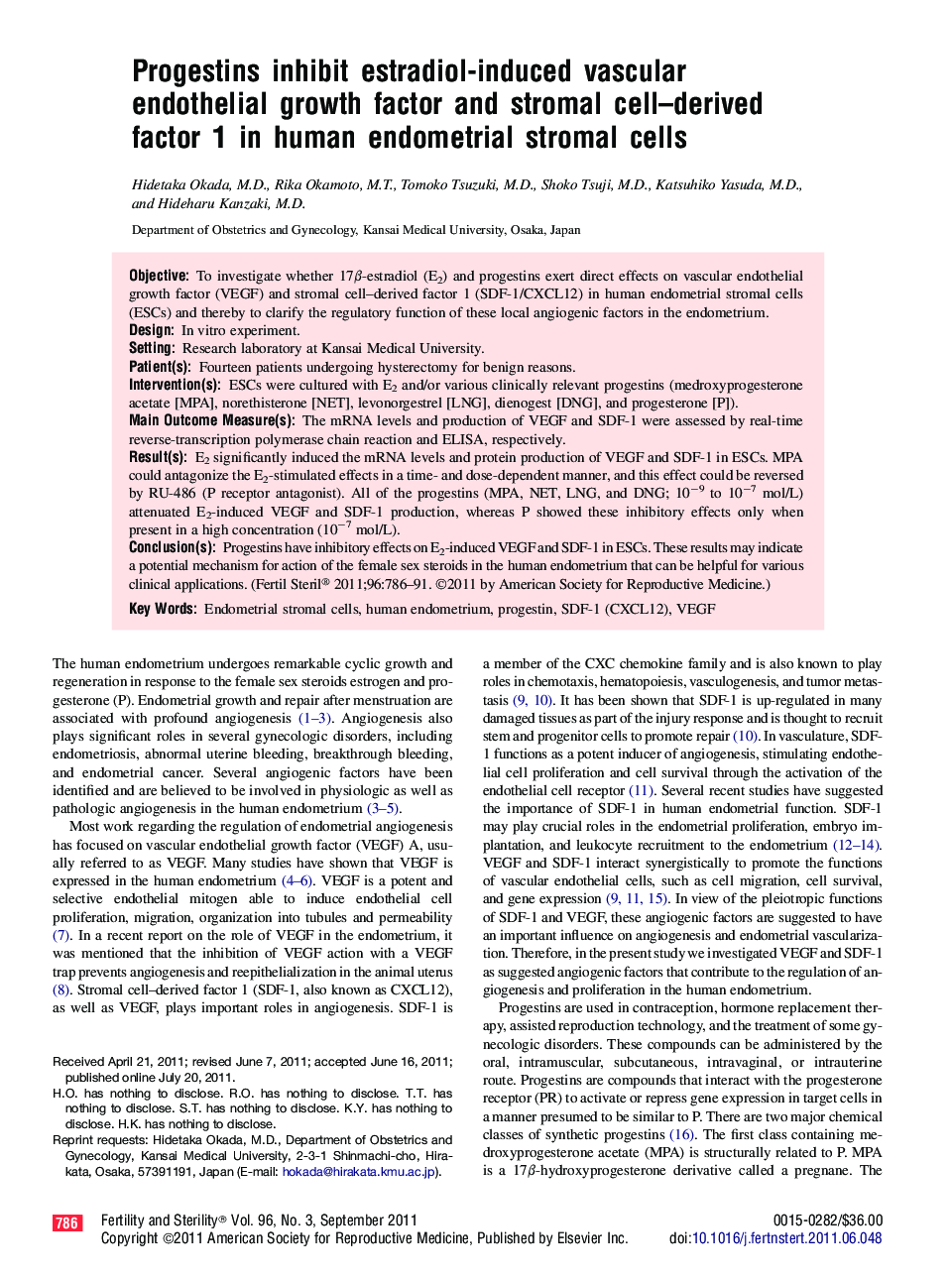| Article ID | Journal | Published Year | Pages | File Type |
|---|---|---|---|---|
| 3935883 | Fertility and Sterility | 2011 | 6 Pages |
ObjectiveTo investigate whether 17β-estradiol (E2) and progestins exert direct effects on vascular endothelial growth factor (VEGF) and stromal cell–derived factor 1 (SDF-1/CXCL12) in human endometrial stromal cells (ESCs) and thereby to clarify the regulatory function of these local angiogenic factors in the endometrium.DesignIn vitro experiment.SettingResearch laboratory at Kansai Medical University.Patient(s)Fourteen patients undergoing hysterectomy for benign reasons.Intervention(s)ESCs were cultured with E2 and/or various clinically relevant progestins (medroxyprogesterone acetate [MPA], norethisterone [NET], levonorgestrel [LNG], dienogest [DNG], and progesterone [P]).Main Outcome Measure(s)The mRNA levels and production of VEGF and SDF-1 were assessed by real-time reverse-transcription polymerase chain reaction and ELISA, respectively.Result(s)E2 significantly induced the mRNA levels and protein production of VEGF and SDF-1 in ESCs. MPA could antagonize the E2-stimulated effects in a time- and dose-dependent manner, and this effect could be reversed by RU-486 (P receptor antagonist). All of the progestins (MPA, NET, LNG, and DNG; 10−9 to 10−7 mol/L) attenuated E2-induced VEGF and SDF-1 production, whereas P showed these inhibitory effects only when present in a high concentration (10−7 mol/L).Conclusion(s)Progestins have inhibitory effects on E2-induced VEGF and SDF-1 in ESCs. These results may indicate a potential mechanism for action of the female sex steroids in the human endometrium that can be helpful for various clinical applications.
